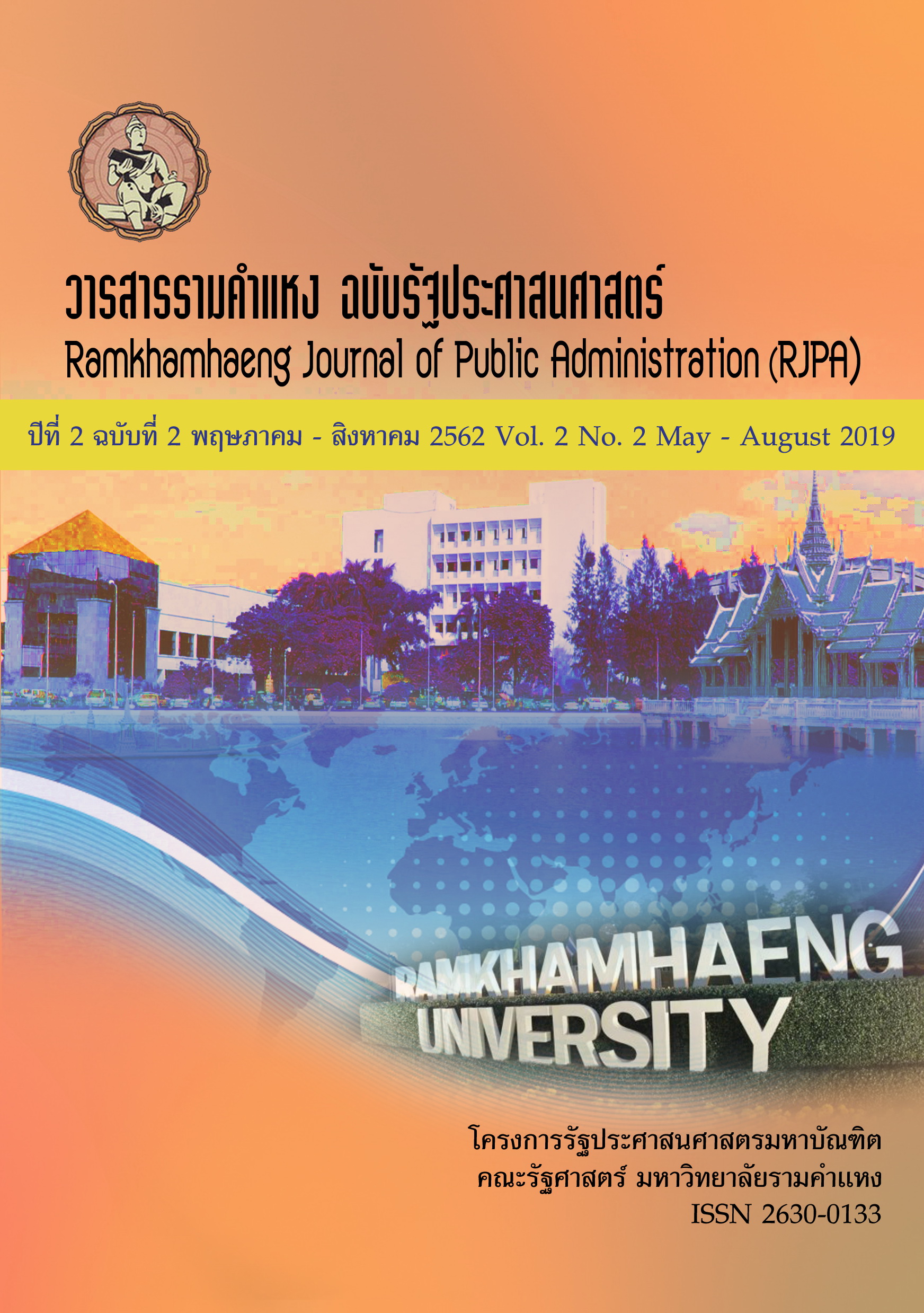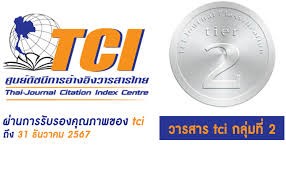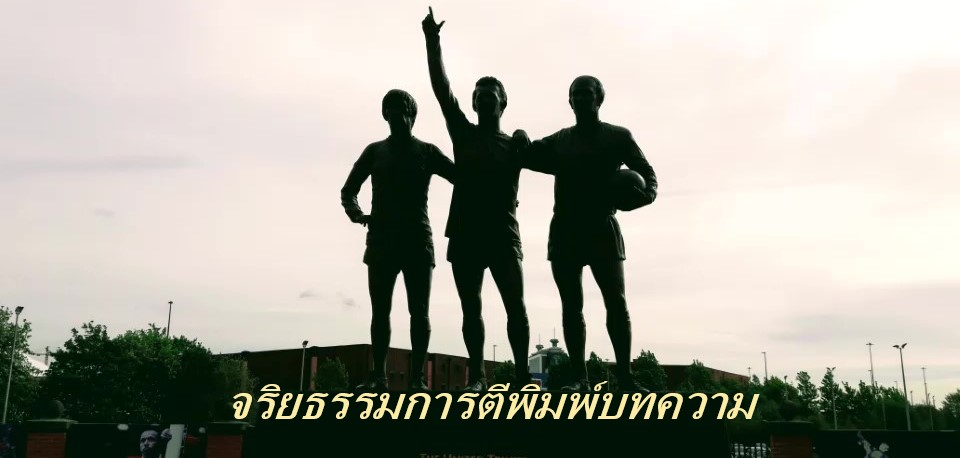การระดมสรรพกำลังของกรมการสรรพกำลังกลาโหม: ศึกษากรณี การช่วยเหลือผู้ประสบสาธารณภัยในกรณีเร่งด่วน (The Mobilization of the Department of Defense Force: A Case Study of Helping People who Suffer from Disaster in Urgent Cases)
Abstract
บทคัดย่อ
การวิจัยนี้มีวัตถุประสงค์เพื่อศึกษาการดำเนินการระดมสรรพกำลังในอดีตและปัจจุบัน ปัญหาและข้อขัดข้องของการดำเนินการระดมสรรพกำลังในอดีตและปัจจุบัน และแนวทางการแก้ไขปัญหาและปรับปรุงพัฒนาการระดมสรรพกำลังของกรมการสรรพกำลังกลาโหมให้ทหารนำไปช่วยเหลือผู้ประสบสาธารณภัยในกรณีเร่งด่วนให้เหมาะสมยิ่งขึ้น โดยใช้วิจัยเอกสารและวิจัยสนาม ในส่วนของการวิจัยสนาม เก็บรวบรวมข้อมูลโดยการสัมภาษณ์แบบมีโครงสร้างจากผู้ให้ข้อมูลสำคัญ จำนวน 15 คน ผลการวิจัยพบว่า แนวทางการแก้ไขปัญหาและปรับปรุงพัฒนาการระดมสรรพกำลังของกรมการสรรพกำลังกลาโหมให้ทหารนำไปช่วยเหลือผู้ประสบสาธารณภัยในกรณีเร่งด่วน คือ การปรับปรุงหรือแก้ไขกฎหมายที่เกี่ยวข้องกับการระดมสรรพกำลังให้มีความทันสมัยและสอดคล้องกับสถานการณ์ปัจจุบัน โดยกำหนดให้ฝ่ายทหารสามารถระดมสรรพกำลังได้เมื่อเกิดสาธารณภัย และผลักดันแผนผนึกกำลังและทรัพยากรเพื่อการป้องกันประเทศ ให้เป็น พ.ร.บ.การระดมสรรพกำลัง เพื่อให้เกิดผลบังคับใช้ทางกฎหมาย ให้เอื้อประโยชน์หรือสนับสนุนให้ฝ่ายทหารสามารถเบิกจ่ายงบประมาณเพื่อไปช่วยเหลือผู้ประสบสาธารณภัยได้ รวมทั้งดำเนินการฝึกการระดมสรรพกำลังแบบบูรณาการร่วมกับทุกภาคส่วน เพื่อลดความซ้ำซ้อน ลดการสิ้นเปลืองทรัพยากรและงบประมาณ เพื่อให้ทุกภาคส่วนเกิดความรู้ความเข้าใจในการระดมสรรพกำลังโดยมุ่งเน้นสถานการณ์ฝึกให้ทหารนำไปช่วยเหลือผู้ประสบสาธารณภัย ตลอดจนสร้างความร่วมมือและการมีส่วนร่วม กับทุกภาคส่วน โดยการวางแผนบริหารจัดการและการใช้ทรัพยากรร่วมกันตั้งแต่ภาวะปกติ และสนับสนุนหน่วยงานที่เกี่ยวข้องจัดทำแผนรองรับการระดมสรรพกำลังในระดับจังหวัด เพื่อให้เกิดความพร้อมเผชิญกับสาธารณภัยในทุกระดับ อีกทั้งดำเนินการพัฒนาสัมพันธ์กับทุกภาคส่วน ในการแลกเปลี่ยนและเรียนรู้ปัญหาอุปสรรคข้อขัดข้องในการระดมสรรพกำลัง เพื่อให้เกิดการเรียนรู้และสร้างเครือข่ายความร่วมมือระหว่างฝ่ายทหารและฝ่ายพลเรือน
Abstract
This research aims to study the operation and problems of mobilization in the past and present. And also to study guidelines for solving problems and improving the mobilization of the Department of Defense in order to provide soldiers with assistance to help those suffering from disaster in urgent cases to be more appropriate. By using document research and field research In conducting, data were collected by structured interviews from 15 key informants. The findings are that the way to solve and improve the problems of mobilization of the department were the improvement or amendment of laws relating to mobilization to be modern and consistent with the current situation. It required the military to mobilize forces when a disaster occurs. Pushing the plan to strengthen the force and resources for national defense to be a law to mobilize forces to achieve legal enforcement. To provide benefits or support the military to disburse the budget to help those who suffer from the disaster, as well as conducting training in mobilization of power integrated with all sectors to reduce duplication and wastage of resources and budget. All sectors should have knowledge and understanding in mobilization by focusing on the situation of training for soldiers to help the victims, as well as creating cooperation and participation with all sectors. By planning, managing and sharing resources from normal conditions and support relevant agencies to prepare plans to support mobilization at the provincial level In order to be ready to face public disasters at all levels. And it should develop the relationship with all sectors to exchange experience and sequence of problems and obstacles in mobilization in order to create a network of cooperation between the military and civilian parties




 Publication Policy (นโยบายการตีพิมพ์บทความ)
Publication Policy (นโยบายการตีพิมพ์บทความ) Publication Ethics (จริยธรรมการตีพิมพ์บทความ)
Publication Ethics (จริยธรรมการตีพิมพ์บทความ)